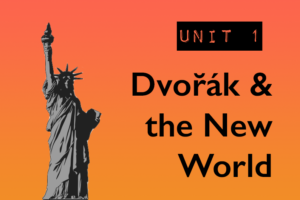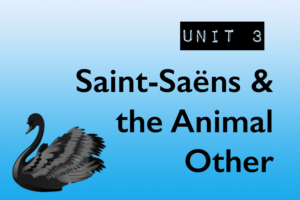Alterity Syllabus
Welcome to the Alterity in Western Music Syllabus! This syllabus was compiled and edited by musicology graduate students in the Department of Music at the University of North Carolina at Chapel Hill. This project is the result of a seminar on the philosophical concept of alterity and its relationship to Western art music from 1885 to 1945. Based on the work of scholars such as Emmanuel Levinas, Homi Bhabha, and Simone de Beauvoir, the concept of alterity can help frame how we to understand the relation between Self and Other.
The syllabus is a pedagogical tool designed to provide access to the ideas discussed in the seminar beyond the walls of this university. By offering case studies from the Western musical tradition we intend to present practical examples on the different ways in which music might intersect with alterity.
The three units are interconnected in that they address similar questions. At the same time, however, each unit stands on its own. There is no preferred order in which to follow the syllabus. The units can serve either as a shorter module in a longer course, or as the core of a course that could be expanded with other examples—several of which are presented in the e-zine. In alphabetical order, by composer, the units focus on the following topics:
1. Antonin Dvorak’s Symphony No. 9 From the New World. This unit offers engagement with the complicated web of Othering that surrounds the work of a Czech composer written in the United States evoking African American and Native American music.
2. The career of African American composer Florence B. Price (who wrote more than three hundred works) reveals how the concepts of race, gender, regionalism, and artistic networks can influence musical composition and reception. We focus on her Symphony No. 1 in E Minor and her art songs.
3. Camille Saint-Saëns’s musical suite The Carnival of the Animals opens a number of issues that arise when the Other is considered non-human.
While these three case studies allow us to explore how alterity has figured into Western music from 1885 to about 1945, there will inevitably be gaps that do not account for all forms of Otherness, time periods, or genres of music. Other resources on the site, such as the eZine and podcasts, engage with these and other case studies that take into account topics such as disability, sexuality, and social movements. We invite you to explore the concepts presented in the syllabus with other figures and musics.
As musicologists working within a discipline that historically has been compliant with colonial and racist practices, we listen to the voices of scholars who are calling for change in the way we practice scholarship and teaching. Recently, Phillip Ewell and Danielle Brown urged for changes in music studies to address inequalities of race and gender that affect methodologies and case studies. We are inspired by their contributions in the choices of our topics and in our pursuit of a public-facing project.
-Team Syllabus (Kari Lindquist, Briana Nave, Eduardo Tadafumi Sato)
How to use the syllabus:
The three units focus on case studies of composers and their repertoire in order to explore larger systemic concepts related to alterity. Each unit has two modules that approach these concepts from different angles by using musical examples. The modules include an introduction, listening section, primary and secondary sources, and self-guided assignments. We invite you to read through these units and modules in any order and at your own pace. We look forward to interrogating these concepts with you and to sparking conversations that can change the direction of music studies.
Download Complete Syllabus as DOCX / PDF



